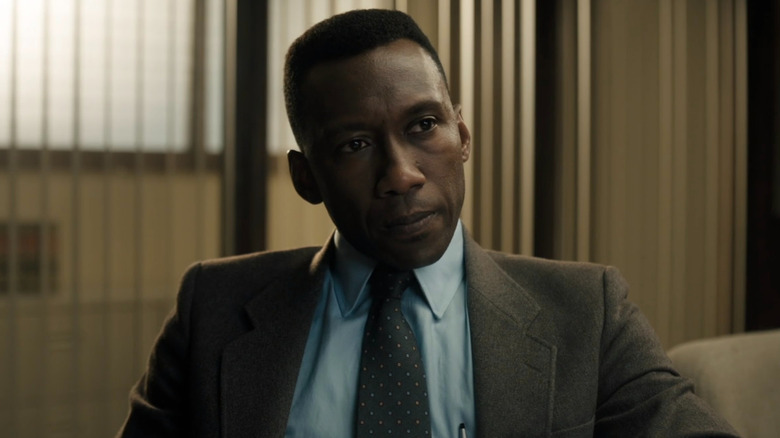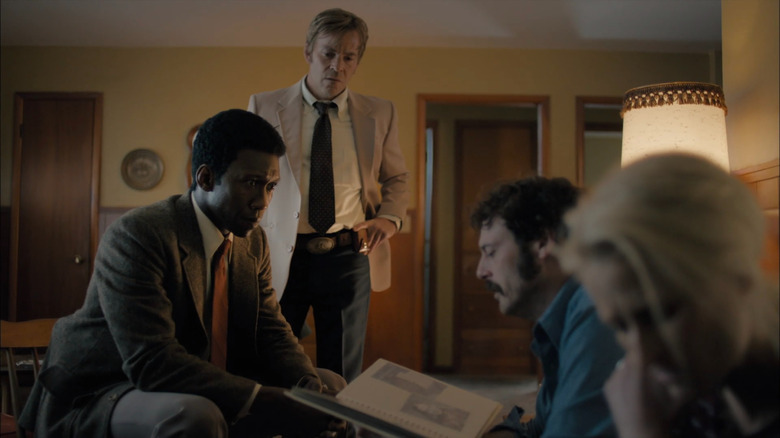How Mahershala Ali Talked His Way Into True Detective's Leading Role
When "True Detective" season 3 hit HBO in early 2019, it was five years removed from its first season and didn't enjoy the same rapturous buzz around the water cooler, but critics still hailed it as a return to form. The series itself started out as a comeback vessel for Matthew McConaughey, whose philosophical character, Rust Cohle, taught us all that time is a flat circle.
After a second season that earned mixed reviews, Oscar winner Mahershala Ali helped steer "True Detective" back to a place of prestige. Like McConaughey, Ali's Oscar victory (his second) coincided with the airing of his final "True Detective" episode; in his case, it happened to occur the very same night the episode aired (on February 24, 2019). However, despite his rising stock as an actor, series creator Nic Pizzolatto originally had Ali in mind for the supporting role Stephen Dorff played. In an interview with Entertainment Weekly, Pizzolatto explained:
"I think I had felt that maybe, in the modern landscape, that I would need to make race the forefront of the story if I were to [cast Ali as the main character in a show set in a Southern town in 1980]. And I asked Mahershala, I said, 'The story is about time and love and memory. I don't want to ignore race, but I would hate for those larger themes to be subsumed because we're suddenly telling a story that's mostly about race.' And he said he didn't want that. He said a lot of the roles that he's offered — and that a lot of actors of color are offered — are centered around race. What he liked about this was this is a fully formed character who wasn't defined by that. And I knew I'd be lucky to have an actor of his caliber."
'It opened up new dimensions'
Talking to Ali — and more importantly, listening to his perspective as an actor seeking to be defined by more than skin color — got Pizzolatto to reexamine his own characters and the casting in mind he had for "True Detective" season 3. Flipping the race of protagonist Wayne Hays without putting race front and center allowed it to inhabit the narrative margins and inform Ali's character in subtle ways. As Pizzolatto put it:
"It's almost like he gave me permission to enter this character's mind. And I found that [changing Wayne Hays' race] worked, and it opened up new dimensions in the character. Suddenly that existential isolation that's endemic to the character of The Detective in popular culture really came out to the forefront when you can see what an outsider he is in this world, and how that would allow him a quality of observation that others would lack who are more comfortable, and how controlled he would have to be in his responses and interactions with the public and his superiors."
The feeling of being an outsider can be a difficult one to navigate, but for Hays as a Black detective in the '80s South, it's something that works as a job asset, allowing him — as Pizzolatto suggests — to observe from a slight distance, which he might not be able to do if he were accepted as part of the in-group in every situation. For his part, Dorff gave such a charismatic performance as Hays' partner, Roland West, that it's hard to imagine anyone other than him filling that role. Ali had the talent to play the lead, but more than just an instance of color-blind casting, reversing the races in "True Detective" season 3 managed to deepen the characterization of the show's protagonist.

